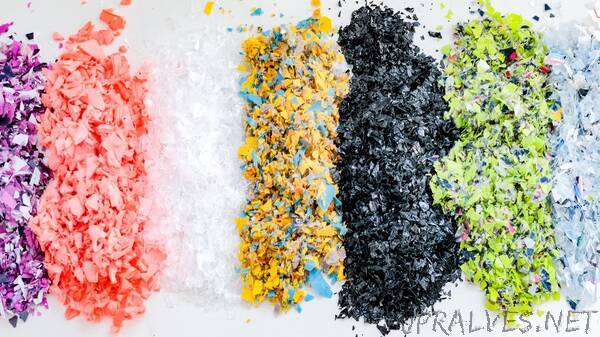
“EPFL spin-off DePoly has developed a method for recycling polyethylene terephthalate (PET) at ambient temperature, even when it’s dirty or mixed with other plastics. The firm confirmed the feasibility of its method with a pilot capable of processing 50 metric tons per year. Having recently raised CHF 12.3 million, DePoly is now building a pilot plant with 10 times that capacity.
PET is a ubiquitous plastic used in everything from clothing and shoes to bottles and packaging. Because it’s recyclable, the material has earned solid green credentials. Switzerland produces 45,000 metric tons of PET bottles a year. Yet according to Swissrecycling, some 20% of these bottles aren’t recycled because they’re dirty or mixed with other plastics, so they end up being incinerated. However, the global PET recycling rate is less than 50%, according to a study, conducted for the environmental NGO Zero Waste Europe, so Switzerland is still a strong performer on this front.
In a bid to reduce the carbon footprint associated with PET, DePoly has developed a method for processing it at ambient temperature, even when it’s soiled or tightly interwoven with other fibers. The firm’s demonstrator has a capacity of 50 metric tons per year, and it now plans to use the CHF 12.3 million it raised a few days ago to build a pilot plant. This larger plant – scheduled to open in 2024 and capable of processing 500 metric tons a year – should prove that DePoly’s method is feasible at scale.
No need for sorting
Samantha Anderson, originally from Canada and now DePoly’s CEO, moved to Switzerland in 2015 to begin her PhD at EPFL. When she first unveiled her PET recycling process, which she developed at EPFL’s Laboratory of Molecular Simulation (LMSO) in Sion, it seemed remarkably simple: plastics of all types and colors are mechanically ground then mixed with various chemical compounds – the exact recipe for which is a closely guarded secret. A few hours later, any non-PET plastics remain intact and can be separated out for further processing. The PET, meanwhile, is broken down into terephthalic acid (a powder) and ethylene glycol (a liquid), which can be used to make new material. The method slots seamlessly into existing recycling processes and could be adapted to other kinds of plastics. “Since there’s no heating involved, our method preserves the integrity of other materials like cotton, which is often mixed with PET in clothing and other items” says Anderson.
After graduating in 2019, Anderson decided she wanted to use her expertise to do “something useful for society.” Together with DePoly’s other founders – Bardiya Valizadeh and Christopher Ireland – she spent months testing different formulas for her process. The breakthrough moment came late one Friday when, for the first time, she saw the PET start to decompose before her eyes. By the time she returned to the lab on Monday morning, it had completely broken down. All that remained was for the team to refine the formula and adjust the dosages, hoping that their method would work for larger volumes of PET. Chemical processes can have a major drawback: the pollution they generate often outweighs any gains. “The substances we use are available over the counter, and they aren’t single-use,” says Anderson.
The DePoly team will now start building its first large-scale pilot plant in Valais. The facility will handle dirty and unsorted PET that can’t be recycled via the usual channels. The firm seems to be turning heads on the domestic startup scene: it won the prestigious >>venture>> Grand Prize in 2019 for its technology, and it’s been listed as one of the top 100 Swiss startups for the past three years in a row. But Anderson already has her sights set on the international market. Wouldn’t it be better to eliminate the issue at source by phasing out plastics from our lives? “I’m the first to admit that’s a better option,” she says. “But that’s still a long way off. In the meantime, we’re incinerating tons of PET every day just because it’s slightly soiled or hasn’t been properly sorted.””
